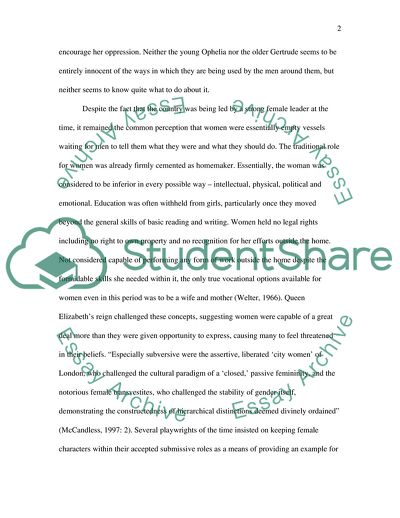Women's Roles in Hamlet Essay Example | Topics and Well Written Essays - 1500 words. https://studentshare.org/literature/1744944-hamlet-essay
Women'S Roles in Hamlet Essay Example | Topics and Well Written Essays - 1500 Words. https://studentshare.org/literature/1744944-hamlet-essay.


